
The world’s growing human population has resulted in an increased demand for protein, and sustainable beef production is key to meeting this demand in the long term. But with natural resources under pressure, beef producers are being compelled to produce more from less. The combination of decreasing hectares available for crop production increased utilisation of grain for fuel, and an increase in input and feed costs are some of the key factors that highlight the changing dynamics of agriculture.
Feed amounts to between 55% and 70% of a livestock concern’s total production cost, so a 10% improvement in animals’ feed efficiency can result in a saving of several hundred million rands per annum for the industry as a whole. Moreover, measuring efficiency may result in decisions that increase productivity without increasing the cost of production, resulting in greater profit margins.
THE IMPORTANCE OF FEED EFFICIENCY
Feedlot studies in the US demonstrated that a 10% improvement in average daily gain (ADG) as a result of a 7% increase in appetite improved profitability 18%, whereas a 10% improvement in feed efficiency returned a 43% increase in profits. By improving feed efficiency, farmers contribute to a more sustainable and profitable production system.
The feed conversion ratio (FCR) is one of the traits calculated at the end of Phase C tests done by the Agricultural Research Council (ARC). FCR measures the feed consumed to gain 1kg of live weight; the less feed consumed by the animal to gain weight, the more efficient it is. Tests show that bulls consume, on average, 3% of their body weight in feed per day.
Bu hikaye Farmer's Weekly dergisinin November 6, 2020 sayısından alınmıştır.
Start your 7-day Magzter GOLD free trial to access thousands of curated premium stories, and 8,500+ magazines and newspapers.
Already a subscriber ? Giriş Yap
Bu hikaye Farmer's Weekly dergisinin November 6, 2020 sayısından alınmıştır.
Start your 7-day Magzter GOLD free trial to access thousands of curated premium stories, and 8,500+ magazines and newspapers.
Already a subscriber? Giriş Yap
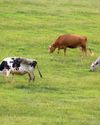
Africa goes from net carbon sink to source
New research shows Africa's impact on greenhouse gases and the need to focus on climate-smart agriculture
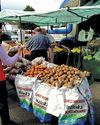
Ireland potato farmers unable to complete planting
Irish potato farmers have reported a delay in harvest and said that the UK might have to prepare for shortages of the produce. The shortfall is due to extreme wet weather during their planting season.
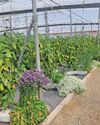
Zero-residue fresh produce a reality
Retail giants are calling for caution when using biologicals and chemical pesticides,

Big boost for mohair producers in Eastern Cape
A collaboration between the Eastern Cape Development Corporation (ECDC) and the Mohair Empowerment Trust (MET) has resulted in a R1,4 million injection into four emerging Angora goat farming operations in the Eastern Cape.
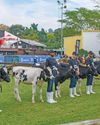
KZN Youth Show at Roval Agricultural Exhibition
The KZN Youth Show will run from Friday, 24 May to Sunday, 26 May at the Royal Showgrounds in Pietermaritzburg.
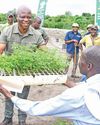
Hemp permits and irrigation system handed over
In an effort to fast-track the entry of rural farmers into the cannabis and hemp industries, KwaZuluNatal Minister for Agriculture and Rural Development, Super Zuma, visited the Shukasibheme Project in Mbazwana, a co-operative in Mseleni, uMhlabuyalingana in the Umkhanyakude District, to hand over cannabis and hemp permits as well as a borehole and irrigation system.

Meet some of the heroes behind avitourism destinations
Exploring what the Garden Route offers birdwatchers, Brian Berkman discovers some special people who run hospitable places to meet and see a variety of species.
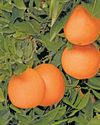
What the Citrus Academy offers aspiring producers
Cobus du Plessis takes a look at the Citrus Growers' Association of Southern Africa's Citrus Academy and how it is helping to develop aspiring farmers in the sector.

Natural-born killers of the insect world
The Myrmeleontidae family of lacewings from the Neuroptera order of insects consists of about 2 000 species of which 125 are found in South Africa.
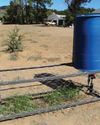
Seeder kick-starts vegetation in challenging environments
Dr George Craven of Noorspoort, Steytlerville, in the south-eastern Karoo, is successfully using a home-built 'bedstead seeder' to re-establish veld plants in an arid area, writes Roelof Bezuidenhout.